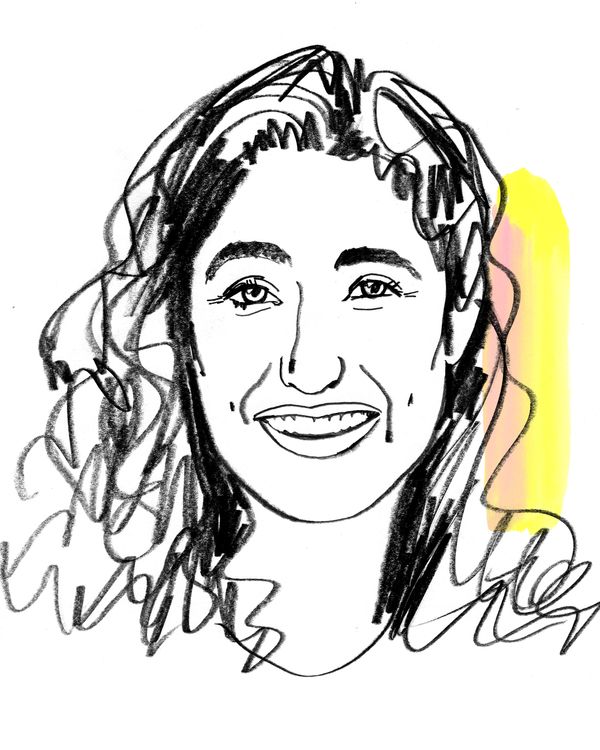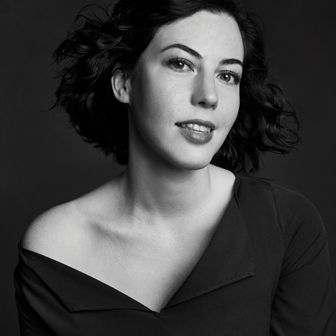
Megan Amram is one of the few good things about Twitter. The comedy writer has more than 1 million followers on the social-media platform, where her daily repetitive tweets about President Donald Trump have become an institution. She’s a writer and co-executive producer on The Good Place (one of the best and smartest sitcoms right now), a consulting producer on The Simpsons, an author, and the star, creator, writer, and director of An Emmy for Megan, a web series in which she met all the minimum requirements to get nominated for two Emmys. Amram lives in Los Angeles. Here’s how she gets it done.
On a typical morning:
I split my time during the year; I spend most of the year at The Good Place, and then I’m at The Simpsons, where I am right now. A lot of people don’t understand that television writing is just like other jobs where you have a set time you have to go to work — and you have to go to work every day. I wake up at 7 a.m. and I work out for an hour each day, which I usually don’t talk about because I try to not be annoying and talk about my workout routine. I lift weights a ton, and I focus all of my negative energy into training for some sort of war that may or may not come. I start work at 10 a.m. at The Simpsons and at The Good Place, and I’m there for eight to 12 hours.
Her social-media habits:
I don’t feel too beholden to social media, and I, luckily, mostly get positive things out of being on it. I love making jokes and having that immediate feedback. I’m not that calculating with when I post things. But I tweet the same thing every day — “Today was the day Donald trump finally became president” — and a lot of people have asked, “Is this something you’ve set on a timer or do you have a bot that automatically does it for you?” No, I do it by hand whenever it seems the most relevant to me. It’s soothing to be able to do this every day, and I’m going to keep on doing it until he’s no longer president.
On being funny online:
My mom is extremely online. She’s very much on Twitter and is constantly sharing memes and stuff, which is very exciting. She’s very tapped in for a 65-year-old. But she the other day was reading replies to a tweet of mine, and she was like, “There are so many funny people in the world.” I was like, “Yes, I 100 percent agree.” There are so many funny people who are making funny jokes to random strangers on the internet, and I feel very lucky I get to do this as a job.
On getting into comedy:
After college, I moved to L.A. without a great plan of how I would get into comedy, but I was going to work day jobs and try to see who I could meet. I started making jokes on Twitter around that time. Soon it became that I met friends through Twitter, and how I got meetings was because I had this small following on Twitter. (If you had told me that the “President of the United States” was going to be using Twitter for nefarious means back in 2010 or 2011 I would have been like, “What? The site where we all make puns and meet up with fun people?”) Before I got my job at Parks and Recreation, I had written for a few other little things, but Mike Schur, who created Parks and Rec and who I still work for at The Good Place, was looking for new, young writers. He had been following me on Twitter and asked me for a meeting. Fast forward: I have been working for him for seven years now.
A typical day in the writers room:
I watched 30 Rock before I became a professional writer and I was like, “Oh, I wonder if that’s really how it is: people just sitting at a table talking.” And it really is. At The Good Place, our season of writing ends up being nine months long for 13 episodes of that show. We’ll start the year and talk very generally about what we want to happen in that entire season; you’re just sitting in a circle brainstorming, then you take notes on note cards and throw them up on a cork board. Then, as the year goes on, you’ll start plotting each specific episode. I adore my job, especially at that show, because it’s very stimulating to be talking with ten of the funniest and smartest people. It really keeps you on your toes, and you have to be operating on high brain functioning all the time.
On coffee:
The two things that get me through the day as a writer are exercising and drinking like ten cups of coffee a day, which I think you’re not supposed to do, based on the fact that I’ve lied to my doctor about how much coffee I drink because it sounds bad when said out loud. I clearly need to cut down.
On writing specific episodes:
The showrunner of the show, meaning the person who is the head writer and often the creator, is literally making the final decisions on everything for the show. On The Good Place, the showrunner is Mike Schur. It’s usually his job to assign episodes to writers to write a rough draft, and that will be the only time you’re not in the writers room. On this show, we get a few days, and we’re allowed to write from home if we want. The episodes usually fit the sensibility of the writer that is being assigned.
How she comes up with her food puns:
It is absolutely not something I can control. I don’t keep a bank; I mostly just make puns — truly pathologically — if I hear any word. I’m constantly trying to self-censor. My mom makes puns, my brother makes puns, my mom said her dad made puns, so I think it’s some sort of brain malformation.
My ability to make puns in the writers room started at Parks and Rec. I was a young, new writer and very nervous. Every once in a while, I’d accidentally make a pun. At one point, Mike Schur said, “You should just say these all out loud.” I was like “Well okay if you want me to.” So a floodgate opened. I think I was assigned the episode Dance, Dance Resolution because we rebooted the neighborhood repeatedly and you kept seeing different restaurant names. When I was on assignment, I could not stop myself from writing hundreds of options, which I did tweet. It’s not even the full list because there were some other ones scattered through the script.
Why she made her web series:
The inspiration behind An Emmy for Megan, which is a web series I made this past year that was pretty much only about me trying to win an Emmy for Best Web Series Acting, was to win an Emmy first and foremost. I was reading about the Emmys last year and I saw these categories that were only two years old, which were Best Short Form Comedy or Drama Series — so basically Best Web Series — and best actor and actress in one of those series. I was like, Look, there’s so many TV shows right now. There’s a good chance that the shows I work on will never win Emmys, and I don’t even care because we’re just trying to make the best shows we can and connect with people. But clearly I would love a trophy, so I’m going to try to game it a little differently. I was nominated for two Emmys, which was incredible. I bought three billboards in L.A. and a bunch of lawn signs, and it really took a lot of effort and money out of me, but I don’t regret anything.
On living in L.A.:
The least L.A. thing about me is that I hate the weather here. I hate sunshine so much, which is partially because Portland, Oregon, is my true home and it was very rainy and cloudy growing up. But I’m pretty into exercise, and I also love vegetables and health food. I always want to talk about new ways to prepare kale, but I don’t want to be too much of an L.A. caricature so I try to limit that.
On learning about philosophy at work:
We really do talk a ton about the philosophical subject matter we have on The Good Place; we have guest lecturers basically — different professors from different colleges — who speak to our writers room. I am very academic and I just love learning about things I don’t know about, and I never took a philosophy class, so I feel so lucky that I have a job that doubles as free college classes, which is super fun.
Why she doesn’t watch comedy:
I don’t really watch comedy ever, because it feels too close to what I’ve been doing all day. I need to work on this, but I have one of two reactions often: One is that if something is hilarious, I’ll be like, That’s so funny, I’ll never be that funny, and then it makes me feel bad. Or it’s not funny and then I feel very haughty, which is also not a great feeling to have. So I do watch a ton of TV, and it’s always one-hour dramas.
Her nighttime routine:
I get off at work at 7 or 8 p.m. usually and I go have dinner. In L.A., a lot of socializing happens where you go out to eat. At one point, I realized I was having rich restaurant food and a drink every night, which made me want to make better choices at restaurants. I get home around 10 p.m., depending on what’s going on. Then I do more work. I might be touching up someone else’s script, or I work on some awards shows. I worked on the Oscars this year, and for that I wrote jokes at night when I was outside of my other jobs. So when I get home, I’m pretty good at still having the energy to work on other things. I write in bed, which I think you’re not supposed to do, but I love my bed. I have a really big bed frame. I’ll just write with my computer in bed while I’m watching a horror movie in the background.
On migraines:
My bedtime is midnight, so I sleep from midnight to 7 a.m. every day. I get extremely bad migraine headaches, which has been a lifelong ordeal. For me, it helps to sleep the same amount every night, really limit how much I drink, I don’t eat any sugar, and I take a bunch of vitamins before I go to bed.
This interview has been edited and condensed.





